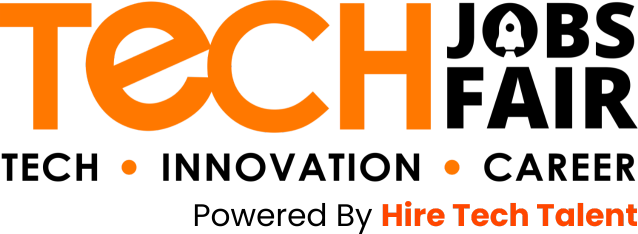- « Previous blog
-
February 24, 2023
-
2812
- Next blog »
Conflict resolution skills: what do they entail?
Conflict is a natural part of life; unless you’re really fortunate and don’t have to work, it also occurs at work.
Interviewers aren’t only asking you this question to find out if you’ve ever had a disagreement with someone; they also want to know how you handle disagreements with coworkers.
Conflict resolution is controlling challenging personalities involved in disagreements calmly and logically.
Facilitating a peaceful resolution of a quarrel or retaliation is another definition of conflict resolution. Highlight your conflict resolution skills because experts are frequently skilled mediators who can connect emotionally with various people.
Disputes are a form of communication that aids groups of individuals or teams in working together to address issues and enhance the working environment, allowing the team to flourish inside the organization.
What Skills Are Needed for Conflict Resolution?
The following are some of the best abilities to help highlight your conflict resolution skills or develop them:
- Possessing the capacity to identify and solve difficulties
- Skills or capacities for understanding others’ viewpoints
- Ability to negotiate and/or come up with a compromise that benefits all parties
- Ability to successfully carry out the resolution in question
How to Respond to the Behavioural Interview Question, “Give Me an Example of How You Handle Conflict”
-
Be Ready and Provide a Good Example
You may be certain that a question on resolving conflicts will be posed to you during the interview. The truth is that there will always be disagreeable coworkers and numerous people with personalities that are different from your own. A potential employer wants to know that you won’t be a liability but rather an asset in these circumstances. When you are asked to handle disgruntled clients or colleagues, how you handle conflict indicates your level of self-control.
Bring up a situation from a prior job where conflict was a significant issue before the interview. At the interview, be prepared. Choose an illustration with a defined problem at the outset, measurable measures to solve it, and a clear resolution. Be clear of vague examples or poorly resolved scenarios.
To organise your response, use the STAR system. STAR is short for:
S- Situation
Set the scene for the tale by providing background information about a particular circumstance or difficulty you encountered. Provide them with two or three key facts concerning relevant volunteer efforts, academic endeavors, or employment settings.
T- Task
Explain your responsibilities or your position within the circumstance or problem. Talk about the objective or assignment that has been given to you. Just focus on one or two key ideas that best describe the work you need to do.
A- Action
Discuss the precise steps you took to deal with the circumstance or get through the obstacle. Describe a handful of the most important actions you did to achieve achievement. Use “I” to emphasize your unique contributions rather than “we,” even if your actions were carried out as part of a team.
R- Result
What result did you get as a result of your actions? Concentrate on two or three primary effects of your actions, and then talk about what you discovered, how you developed, and why the experience made you a stronger worker. And if you can, give specific examples of how your efforts have yielded benefits.
-
Avoid Being Casual or Glib
If handled improperly, conflicts at work can be very serious and significantly reduce productivity and profitability. Casual statements about “meeting them in the parking lot to figure things out” or snarky remarks about ignoring the person don’t help to showcase your capacity to work with challenging or dissimilar personalities. Instead of making light of the circumstance, discuss the matter maturely and composedly. Even if you contributed to the conflict, address it head-on. Once you finish the example and go on to the results section of your STAR answer, you can promote your abilities in dispute resolution.
-
Maintain an Uplifting Outlook
Interestingly, work confrontations can lead to quite gratifying outcomes if handled properly. Don’t focus on the negative aspects of the circumstance when telling the story, even though it started off badly. Concentrate on the successful conclusion and your admirable actions to complete the task. The interviewer wants to know how a bad situation turned into a good one, so while this question can be challenging, focusing on the issue at hand may come off as more problem-focused than solution-based.
-
Present the Conflict from Both Sides
The fact is that your prospective recruiter desires to see you take responsibility for your part in the argument. It’s easy to color the other aspect as the “bad guy” simply due to the fact they aren’t in the room. Instead of denying your difficulties, deal with them head-on and accept responsibility. Try embracing your flaws while avoiding dwelling on the negative aspects of your personality.
Interview questions and answers about conflict
-
How do you deal with conflict?
Working with others is a must for most employment, and conflict can arise due to differences in personalities, viewpoints, and ideas. Employers want to know if you can handle these circumstances politely and professionally. Be truthful in your response regarding how you handle these circumstances. Admit that you have trouble with disagreement and describe the steps you are taking to get better at it.
Example Response:I manage conflict effectively most of the time. I manage conflict effectively most of the time.I recognize that human beings can disagree with each other and that this could bring in troubles. When there’s a disagreement, I try to work out the differences and discover an answer that benefits everyone. I occasionally have a tendency to grow hostile when trying to communicate my opinions. I am working on techniques to make better decisions, such as pausing to take a deep breath and giving my responses a few thoughts.
-
Explain a time when you experienced conflict at work and how you handled it
Employers can evaluate your ability to resolve conflicts using this question’s example and an actual occurrence from your experience. It aids in their evaluation of your teamwork skills and how you handle disputes with coworkers. Also, it allows you to discuss past instances of disagreement and how you handled them.
Example Response: When working on a project for a former employer, one of my team members routinely questioned each and every option I proposed. He also had the propensity to talk over and interrupt others without paying attention to what they had to say. He interrupted others without listening, which made it difficult for me to be patient. It got to the point where our separate bosses gave us both advice on acting.
To end this conflict, I had to admit that I had no power to influence or alter his actions. I also agreed that the stress brought on by the project’s intense workload was probably the cause of this conduct from both of us. I changed my own communication approach; as a result to foster empathy, stay away from triggers, and develop patience for interruptions. When we needed to collaborate again, we could finish the job and keep civil communication going.
You Can Manage and Resolve Conflict Like A Pro
Conflict need not be a dreaded eight-letter word. We can improve our relationships and communicate our expectations regarding others’ expectations by resolving conflicts. You can choose when to avoid conflict and when to address it or when to highlight your conflict resolution skills and techniques and put those techniques into practice. It will improve your interactions with your coworkers and clients.
Join 20,000+ Subscribers
Get exclusive access to new tips, articles, guides, updates, and more.


